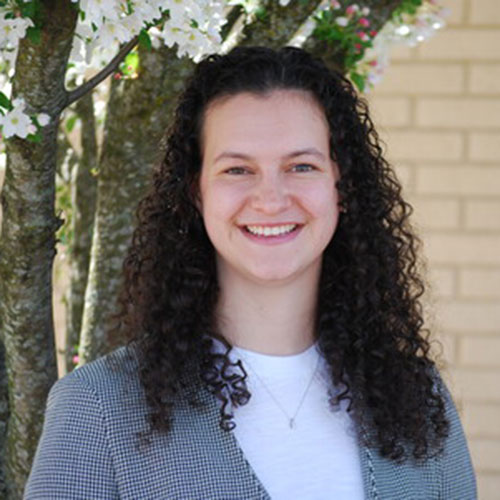
Environmental studies major investigates water bird visitation at local nature preserve

In 2018, 12 years after a century-old industrial site closed, the city of Rittman decided to turn it into the William J. Robertson Nature Preserve (WJRNP). Community members began visiting the 210-acre site for birdwatching as wildlife started to arrive in the area. Carolyn Klein ’24, an environmental studies major at The College of Wooster, interned with the organization to help develop a nature interpretive curriculum that educated both children and adults on the ecological importance of the preserve. While interning, she took advantage of the opportunity to collect data for her senior Independent Study that considers several variables of water quality and the size of the ponds that impact the bird communities that visit the preserve. Klein’s I.S. mentor, Carlo Moreno, assistant professor of environmental studies, helped connect her to the internship opportunity.
“It’s really fun to do something more exploratory like this where you’re not setting up an experiment and following very rigid steps.”
—Carolyn Klein ’24
During 33 observations across every pond at WJRNP, Klein surveyed three groups of birds: dabbling waterfowl (like ducks, geese, and swans), predatory wading birds (like herons and egrets), and small shorebirds (like killdeer and sandpipers). She discovered that each of the three observed groups returned most often to exposed shoreline areas without a lot of thick vegetation and ponds with more open water area.
“While birds are one of the main attractions at the preserve with 197 species spotted, I also recognize the diversity of landscapes in this preserve and their ability to attract different bird species and things like salamanders, frogs, snakes, and insects,” Klein said.
Q: What excites you about your I.S.?
Klein: It’s really fun to do something more exploratory like this where you’re not setting up an experiment and following very rigid steps. You’re kind of observing what you’re seeing in the world and looking at what might be impacting those differences that are already in existence. It’s important to have those kinds of studies where you’re not thinking of an idea first, and then going out and looking at exactly what you were hoping to see. It’s more about exploring what looks interesting.
Q: How did Wooster prepare you for designing your project?
Klein: I incorporated a lot of different areas into my research question, and my interdisciplinary classwork definitely helped me prepare for that. I also received an APEX Fellowship with six weeks of funding for work as a summer program leader at WJRNP. APEX funding for this internship made it possible for me to collect at least 60-70% of the data for my I.S. over the summer, because I was already out at my study site working every weekday. This made my workload in the fall semester much more manageable as I only had to drive out to the preserve a couple of times each week. Without this opportunity, I would never have been able to collect and analyze as much data for this project as I did.
Q: In what ways has your relationship with your I.S. mentor supported you throughout this process?
Klein: My I.S. mentor, Dr. Moreno, was very supportive throughout the entire process, which included setting up the internship that allowed me to conduct research at the WJRNP. During both the research and writing process, he allowed me to be creative and pushed me to make a lot of my own decisions instead of just telling me exactly what to do at each step. I really enjoyed this freedom, even though it was sometimes scary, and it helped me become more independent with my work and confident in my own ideas.
Q: What has I.S. taught you about designing a research project?
Klein: I.S. taught me to embrace the idea that you might not totally know how everything is going to work. I came into this with a pretty different idea at the end of junior I.S. and I started with slightly different methods. After I tried a few things, I realized that I wanted to change my research question a little bit. It’s about being open to changing your ideas, but also being confident in what you think is interesting, and following through with whatever really grabs your attention.
After graduation Klein moved to Binghamton, New York and now works as a nature educator and RootED after-school program educator with Cornell Cooperative Extension of Broome County. She plans and teaches nature programs similar to those she taught at the WJRNP, both in schools and in the greater community, as well as a wider variety of topics for summer camps and other programs.
“It has been an incredibly rewarding position so far, and my APEX fellowship and I.S. research both helped me feel prepared for this job,” she said. “In the future I may pursue graduate school for science communication or education.”
Posted in Independent Study on June 3, 2024.
Related Posts
Related Areas of Study
Environmental Studies
Natural sciences, social sciences, and humanities courses combine for those who want to be part of environmental solutions
Major MinorBiology
Explore molecular and cellular biology, ecology and more with top faculty and access to extensive lab facilities.
Major Minor

